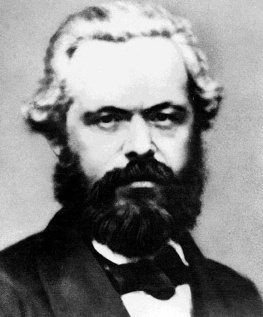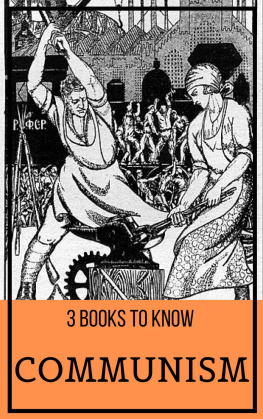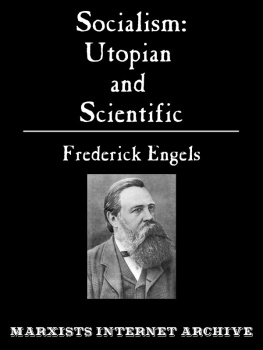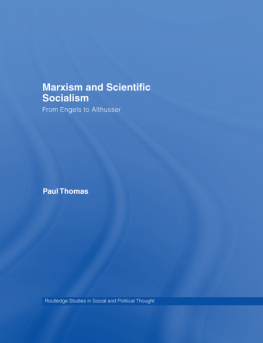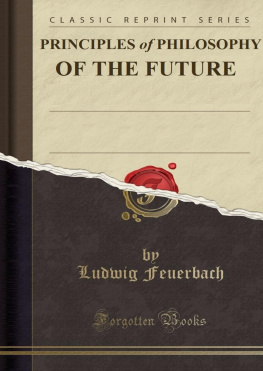Essential Writings of Friedrich Engels
Socialism, Utopian and Scientific, ThePrinciples of Communism, and Others
Edited by Lenny Flank
Copyright 2009 by Lenny Flank
All rights reserved
Smashwords ebook edition.
Red and Black Publishers, PO Box 7542, StPetersburg, Florida, 33734
http://www.RedandBlackPublishers.com
Smashwords Edition, License Notes
This ebook is licensed for your personalenjoyment only. This ebook may not be re-sold or given away toother people. If you would like to share this book with anotherperson, please purchase an additional copy for each person youshare it with. If youre reading this book and did not purchase it,or it was not purchased for your use only, then you should returnto Smashwords.com and purchase your own copy. Thank you forrespecting the hard work of this author.
Contents
Socialism; Utopian and Scientific
The Principles of Communism
The Part played by Labour in the Transition from Apeto Man
Ludwig Feuerbach and the End of Classical GermanPhilosophy
The Origin of the Family, Private Property, and theState
Socialism: Utopian and Scientific
General Introduction and the History ofMaterialism
The present little book is, originally, part of alarger whole. About 1875, Dr. E. Dhring, privatdocent (universitylecturer who formerly received fees from his students rather than awage) at Berlin University, suddenly and rather clamorouslyannounced his conversion to Socialism, and presented the Germanpublic not only with an elaborate Socialist theory, but also with acomplete practical plan for the reorganization of society. As amatter of course, he fell foul of his predecessors; above all, hehonored Marx by pouring out upon him the full vials of hiswrath.
This took place about the same time when the twosections of the Socialist party in Germany - Eisenachers andLasselleans - had just effected their fusion (at the GothaUnification Congress), and thus obtained not only an immenseincrease of strength, but, was what more, the faculty of employingthe whole of this strength against the common enemy. The Socialistparty in Germany was fast becoming a power. But, to make it apower, the first condition was that the newly-conquered unityshould not be imperiled. And Dr. Dhring openly proceeded to formaround himself a sect, the nucleus of a future separate party. It,thus, became necessary to take up the gauntlet thrown down to us,and to fight out the struggle, whether we liked it or not.
This, however, though it might not be anover-difficult, was evidently a long-winded business. As iswell-known, we Germans are of a terribly ponderous Grundlichkeit,radical profundity or profound radicality, whatever you may like tocall it. Whenever anyone of us expounds what he considers a newdoctrine, he has first to elaborate it into an all-comprisingsystem. He has to prove that both the first principles of logic andthe fundamental laws of the universe had existed from all eternityfor no other purpose than to ultimately lead to thisnewly-discovered, crowning theory. And Dr. Dhring, in thisrespect, was quite up to the national mark. Nothing less than acomplete "System of Philosophy", mental, moral, natural, andhistorical; a complete "System of Political Economy and Socialism";and, finally, a "Critical History of Political Economy" - three bigvolumes in octavo, heavy extrinsically and intrinsically, threearmy-corps of arguments mobilized against all previous philosophersand economists in general, and against Marx in particular - infact, an attempt at a complete "revolution in science" - these werewhat I should have to tackle. I had to treat of all and everypossible subject, from concepts of time and space to Bimetallism;from the eternity of matter and motion, to the perishable nature ofmoral ideas; from Darwin's natural selection to the education ofyouth in a future society. Anyhow, the systematic comprehensivenessof my opponent gave me the opportunity of developing, in oppositionto him, and in a more connected form than had previously been done,the views held by Marx and myself on this great variety ofsubjects. And that was the principal reason which made me undertakethis otherwise ungrateful task.
My reply was first published in a series of articlesin the Leipzig Vorwarts, the chief organ of the Socialist party,and later on as a book: "Herr Eugen Dhrings Umwalzung derWissenchaft" (Mr. E. Dhring's "Revolution in Science"), a secondedition of which appeared in Zurich, 1886.
At the request of my friend, Paul Lafargue, nowrepresentative of Lille in the French Chamber of Deputies, Iarranged three chapters of this book as a pamphlet, which hetranslated and published in 1880, under the title: "Socialismeutopique et Socialisme scientifique". From this French text, aPolish and a Spanish edition were prepared. In 1883, our Germanfriends brought out the pamphlet in the original language. Italian,Russian, Danish, Dutch, and Roumanian translations, based upon theGerman text, have since been published. Thus, the present Englishedition, this little book circulates in 10 languages. I am notaware that any other Socialist work, not even our CommunistManifesto of 1848, or Marx's Capital, has been so often translated.In Germany, it has had four editions of about 20,000 copies inall.
The Appendix, "The Mark", was written with theintention of spreading among the German Socialist party someelementary knowledge of the history and development of landedproperty in Germany. This seemed all the more necessary at a timewhen the assimilation by that party of the working-people of thetowns was in a fair way of completion, and when the agriculturallaborers and peasant had to be taken in hand. This appendix hasbeen included in the translation, as the original forms of tenureof land common to all Teutonic tribes, and the history of theirdecay, are even less known in England and in Germany. I have leftthe text as it stands in the original, without alluding to thehypothesis recently started by Maxim Kovalevsky, according to whichthe partition of the arable and meadow lands among the members ofthe Mark was preceded by their being cultivated for joint-accountby a large patriarchal family community, embracing severalgenerations (as exemplified by the still existing South SlavonianZadruga), and that the partition, later on, took place when thecommunity had increased, so as to become too unwieldy forjoint-account management. Kovalevsky is probably quite right, butthe matter is still sub judice (under consideration).
The economic terms used in this work, as afar as theyare new, agree with those used in the English edition of Marx'sCapital. We call "production of commodities" that economic phasewhere articles are produced not only for the use of the producers,but also for the purpose of exchange; that is, as commodities, notas use-values. This phase extends from the first beginnings ofproduction for exchange down to our present time; it attains itsfull development under capitalist production only, that is, underconditions where the capitalist, the owner of the means ofproduction, employs, for wages, laborers, people deprived of allmeans of production except their own labor-power, and pockets theexcess of the selling price of the products over his outlay. Wedivide the history of industrial production since the Middle Agesinto three periods:
-handicraft, small master craftsman with a fewjourneymen and apprentices, where each laborer produces a completearticle;
-manufacture, where greater numbers of workmen,grouped in one large establishment, produce the complete article onthe principle of division of labor, each workman performing onlyone partial operation, so that the product is complete only afterhaving passed successively through the hands of all;



